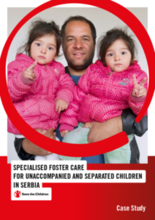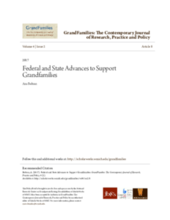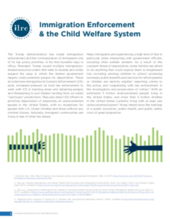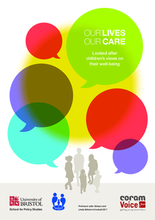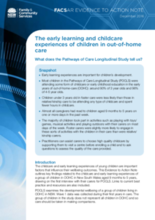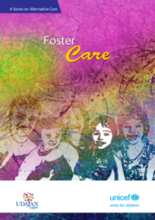Displaying 1621 - 1630 of 2221
This documentary tells the stories of four Aboriginal grandmothers in Australia whose grandchildren have been removed and placed in state care, and who are fighting to have their grandchildren placed in their care.
This Save the Children case study aims to briefly describe the process of developing specialised training package for foster care of Unaccompanied and Separated Children in Serbia, its key components and main lessons learned from the process.
This article examines the stories that foster care youth tell to legislatures, courts, policymakers, and the public to influence policy decisions.
This policy brief highlights the work of the Grandfamilies Advocacy Network Demonstration to advocate for policy reforms for grandfamilies in the US.
This report from the Immigrant Legal Resource Center of the United States highlights the connections between US immigration policy and the child welfare system, particularly the criminalization of undocumented immigrants and its impact on foster care in the US.
The present study tested whether family finding, as implemented in North Carolina from 2008 through 2011, improved child welfare outcomes for youth at risk of emancipating foster care without permanency.
This report summarises the findings from the 611 children and young people who completed the Bright Spots’ ‘Your Life, Your Care’ survey on their experiences in care.
This Evidence to Action Note outlines key findings related to the childcare and early learning experiences of a group of children in out-of-home care (OOHC) in New South Wales aged 9 months to 5 years, drawing on the first interview with their carers for the Pathways of Care Longitudinal Study (POCLS).
The current study examined the impact of transitions on foster children’s adjustment to a new placement in out-of-home care in the US.
This booklet covers the latest legal and policy framework on Foster Care in India, which has been presented in an easy-to-understand style so that it can be used as an effective reference material by all stakeholders.

